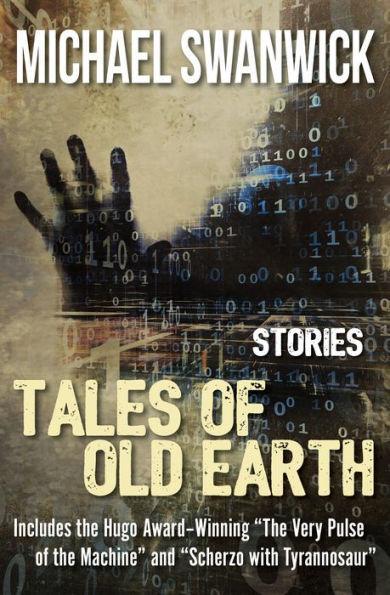(1) LAST NIGHT’S DOCTOR WHO. [Item by SF Concatenation’s Jonathan Cowie.] Last night we had the annual BBC Children in Need which is an annual charity TV marathon (which to date has raised over £1 billion). And in the mix Doctor Who was there.
(2) BBC RADIO DISCUSSES BUTLER. [Item by SF Concatenation’s Jonathan Cowie.] The Exploding Library on BBC 4 looked at Octavia Butler with a lot of focus on the Parable of the Sower. It was superb. “The Exploding Library, Parable of the Sower, by Octavia E. Butler”.
Comedian Desiree Burch unravels Octavia Butler’s visionary 1993 novel Parable of the Sower and its sequel Parable Of The Talents, an eerily-prescient dystopian portrait of society in collapse after being torn apart by climate change and corporate greed – with a populist demagogue US president who rides to power with the slogan “Make American Great Again”.
Oh, and the story – pure fantasy of course, imagined by Butler three decades ago in the early 1990s – is set initially in 2024.
Now this all seems to Desiree just a little bit too close to reality for comfort. But is there hope – even optimism – beneath the surface of this chillingly bleak vision?

(3) TUBI OR NOT TUBI. Should be an easy question to answer now: “Tubi is Adding Every Episode of BBC’s Classic Doctor Who for Free” according to Cord Cutters News.
The Tardis has landed on Tubi. Viewers in the U.S. and Canada can now watch every episode of Classic Doctor Who and Classic Doctor Who: The Animated Lost Stories on the free ad-supported service.
If you plan to watch Classic Doctor Who in its entirety, be prepared to put in a lot of time. Doctor Who is the longest running action-adventure series in the world. Classic Doctor Who aired from 1963 to 1989 and has over 600 episodes. Tubi created a “New to Who” collection to ease in new ‘Whovians’ — a term coined by the sci-fi show’s legion of fans….
(4) CANCELLATIONS LEAVE FANS IN UPROAR. “Backlash as Netflix cancels five shows at once including its ‘best series’” – The Independent has the story.
…Now the Hollywood strikes are over, networks and streaming services are having to make decisions about their existing properties, with it being expected that many might fall foul of an untimely axing due to rising costs after production on all projects was stalled while the writers and actors protested for fairer compensation.
Days later, Netflix has gone ahead and culled five shows, one of which was a number one hit and had a fervent fanbase that campaigned for a season renewal: Shadow and Bone.
While the first season of the fantasy series, adapted from Leigh Bardugo’s Grishaverse novels, did big business for Netflix – even spawning a video game spin-off – season two struggled to break through in a major way, which is believed to have led to the service’s decision considering the show’s large budget.
Other shows that will no longer return include animated shows Agent Elvis and Captain Fall as well as Kim Cattrall-starring series Glamorous and sci-fi comedy Farzar.
(5) THOSE WERE THE DAYS MY FRIEND. “Don’t let anybody diss L.A.’s reading habits. This was and is a bookstore boomtown” says a defensive LA Times.
It’s late 1937, and you’re F. Scott Fitzgerald, the once-celebrated writer, and you’re getting paid $1,000 a week, which, especially during the Depression, and even for the gilded coffers of MGM, isn’t toy money.
From your place at the Garden of Allah apartments on Sunset, in what is now West Hollywood, you might decide to amble the couple of miles to Hollywood Boulevard, to the Stanley Rose Book Shop, knuckled right up against Musso and Frank. There, you might find other scribblers, with names like Saroyan and Steinbeck, to share a convivial drink nearby; some of Hollywood Boulevard’s many bookshops are open almost as late as the bars.
Or you’re Ray Bradbury, and on a late April day in 1946 — April the 24th, if you must know — you head downtown, to Booksellers Row, centered on 6th Street between Hill and Figueroa. You’d get there by bus or Red Car, or on your bicycle, because you do not drive, not even one single block, not since you saw that gory accident about 10 years earlier.
You walk into Fowler Brothers bookstore, which opened in 1888 as a church supply shop, and by the time it would close its doors for good in 1994, it was the oldest surviving bookstore in the city. On that day, a brilliant and fetching book clerk named Maggie McClure caught his attention; Bradbury caught hers because she thought he was shoplifting books into his vast trench coat. They married not quite 18 months later…..
(6) CARTOON TRIVIA. Ranker harkens back to “Things We Learned About Nostalgic Cartoons In 2021”. (Which despite the title is a new 2023 post.)
From details about the voice actors, to insights into plot devices and influences – and even a few answers to enduring questions – here are a batch of facts we learned about nostalgic cartoons in 2021. Vote up the ones that are perfectly Smurfy!
Number One on the list:
Actor and comedian Paul Winchell was a man of many talents; he was a ventriloquist and also an inventor, building and patenting a mechanical heart in 1963.
Winchell began voice acting for Hanna-Barbera during the late 1960s, notably appearing in Winnie-the-Pooh featurettes. As the voice of Tigger, Winchell won a Grammy for Winnie the Pooh and Tigger Too in 1974. When The Smurfs first aired in 1981, he provided the voice for the antagonist, Gargamel.
While Winchell navigated acting and performing, he simultaneously invented and patented dozens of devices. His artificial heart design, which he donated to the University of Utah, was fundamental in developing the model that was used in 1982 for the first artificial heart transplant.
(7) KICKSTARTER FOR VARLEY ADAPTATION. John Varley encourages fans to support Jean-Paul Tetu’s Kickstarter: “Thémis – The Next Frontier”.

Jean-Paul Tetu… has a small CGI company and is a fan of my work. He had been tinkering with scenes from my novel Titan, and you can see the results here.
I think it’s pretty impressive. Since this is a crowdfunding site you probably can see where I’m going with this. If you are interested in seeing my most popular work turned into a 6-part TV series, you can contribute.
As of this writing, $5,882 of the $65,502 goal has been pledged with 32 days remaining.

(8) WESTON OCHSE (1965-2023). Weston Ochse died November 18, his wife announced on X.com. A recent update to his Patreon suggests he was waiting for a new liver.
Ochse won the Bram Stoker Award for his first novel, Scarecrow Gods, in 2005 and subsequently received additional nominations, Redemption Roadshow (2009 finalist for the Bram Stoker Award for Long Fiction); The Crossing of Aldo Ray (2010 finalist for the Bram Stoker Award for Short Fiction); Multiplex Fandango (2012 finalist for the Bram Stoker Award for Collection); and Righteous (2013 finalist for the Bram Stoker Award for Short Fiction). He also won four New-Mexico Arizona Book Awards.
(9) TODAY’S BIRTHDAYS.
[Compiled by Cat Eldridge.]
- Born November 18, 1939 — Margaret Atwood, 84. Well, there’s that work called The Handmaid’s Tale that’s garnering a lot of discussion now. (Not my my cup of Tea, Earl Grey, hot.) There’s the excellent MaddAddam Trilogy which I wholeheartedly recommend, and I’ve heard good things about The Penelopiad. What else do you like of hers?
- Born November 18, 1946 — Alan Dean Foster, 77. There’s fifteen Pip and Flinx novels?!? Well the first five or so were superb. They’re on Audible so I may give the three a re-listen. Spellsinger series is tasty too. Can’t say anything about his SW work beyond the most excellent Splinter of the Mind’s Eye which was the first Star Wars novel authorized by George Lucas.
- Born November 18, 1950 — Michael Swanwick, 73. I will single out The Iron Dragon’s Daughter and Jack Faust as the novels I remember liking the best. Between 1999 and 2003, he had nine stories nominated for the Hugo Award and won at Aussiecon 3, ConJosé, and Torcon 3. His short fiction is obviously superb and I see the usual suspects have the most excellent Tales of Old Earth collection with this lovely cover.

- Born November 18, 1952 — Doug Fratz. Long-time fan and prolific reviewer for the New York Review of Science Fiction and Science Fiction Age who also published a number of zines including the superbly titled Alienated Critic. He was nominated for Best Fanzine Hugo four times. Mike has a remembrance of him here. (Died 2016.)
- Born November 18, 1961 — Steven Moffat, 62. Showrunner, writer and executive producer of Doctor Who and Sherlock Holmes. His first Doctor Who script was for Doctor Who: The Curse of Fatal Death, a charity production that you can find here and I suggest you go watch now. He also co-wrote The Adventures of Tintin: The Secret of the Unicorn, a most excellent animated film. He has deservedly won four Hugo Awards, all for Doctor Who.
- Born November 18, 1953 — Alan Moore, 70. His best book is Voice of the Fire which admittedly isn’t genre. Though the first volume of The League of Extraordinary Gentlemen is very close. Pity about the film which surprisingly has a forty-four percent rating among audience reviewers at Rotten Tomatoes. Have they no sense of good film making? I’m also fond of The Ballad of Halo Jones and Swamp Thing work that he did as well. And let’s not forget that The Watchmen won a well-deserved Hugo at Nolacon II.
(10) COMICS SECTION.
- Tom Gauld adds a touch of Bergman here.
(11) TEXT COVERAGE OF SPACEX’S “SUCCESS“. [Item by Mike Kennedy.] “SpaceX launch attempt ends in loss of most powerful rocket ever built” at CNN.
… after months of rebuilding following an explosive initial launch in April, SpaceX made a second attempt at launching its deep-space rocket system Starship, but not all went according to plan.
The uncrewed Starship spacecraft launched aboard the most powerful rocket ever built on Saturday morning, but both were lost shortly after liftoff.
The Super Heavy rocket booster ignited its 33 massive engines and Starship experienced a safe liftoff. SpaceX tried “hot staging” for the first time, essentially a step in which the spacecraft separated from the rocket booster by blunt force trauma.
After hot staging, the rocket booster exploded in a fireball over the Gulf of Mexico. Starship initially continued on just fine before SpaceX lost the spacecraft’s signal and triggered the system’s software to terminate the flight so it didn’t veer off course.
Starship was intended to fly nearly a lap around the planet before returning to Earth, but data from this second test flight will be used to determine SpaceX’s next steps in making humanity “multiplanetary.”
The New York Times was also very kind: “SpaceX Starship Launch Highlights From the 2nd Flight of Elon Musk’s Moon and Mars Rocket”.
SpaceX, Elon Musk’s spaceflight company, launched its Starship rocket from the coast of South Texas on Saturday, a mammoth vehicle that could alter the future of space transportation and help NASA return astronauts to the moon.
Saturday’s flight of Starship, a powerful vehicle designed to carry NASA astronauts to the moon, was not a complete success. SpaceX did not achieve the test launch’s ultimate objective — a partial trip around the world ending in a splashdown in the Pacific Ocean.
But the test flight, the vehicle’s second, did show that the company had fixed key issues that arose during the earlier test operation in April. All 33 engines in the vehicle’s lower booster stage fired, and the rocket made it through stage separation — when the booster falls away and the six engines of the upper stage light up to carry the vehicle to space….
… According to SpaceX’s “fail fast, learn faster” approach toward rocket design, successfully avoiding a repeat of past failures counts as major progress.
However, the second flight revealed new challenges that Mr. Musk’s engineers must overcome.
Soon after stage separation, the booster exploded — a “rapid unscheduled disassembly,” in the jargon of rocket engineers. The upper-stage Starship spacecraft continued heading toward orbit for several more minutes, reaching an altitude of more than 90 miles, but then SpaceX lost contact with it after the flight termination system detonated….
(12) BLINDED BY THE LIGHT. [Item by Bruce D. Arthurs.] A post on Mastodon from Shannon Coffey linked to an Eye article reviewing Wheels of Light: Designs for British Light Shows 1970-1990 written by Kevin Foakes, about the tech and artists behind the light shows popular at music events back in the day. Besides being a pretty cool subject all on its own, the article also mentions one artist who created some of the color wheels through which projections were made was David Hardy, who I recognize much more readily for his many examples of space art. “The fantastic light trip” at Eye Magazine.
Kevin Foakes’ Wheels of Light: Designs for British Light Shows 1970-1990 is book nine in Four Corners’ Irregulars series, intended to present ‘a visual history of modern British culture’, writes John L. Walters. The arcane tale begins in the 1960s, when artists and designers such as Mark Boyle (Boyle Family), Keith Albarn, Five Acre Lights and Barney Bubbles made shows that would accompany performances in venues such as UFO and Middle Earth in London.
As underground music became more visible (and profitable) a small number of entrepreneurs started supplying the demand for light shows at gigs and discos. The companies they started – Optikinetics, Pluto, Orion, Light Fantastic – and their visual archives are at the core of this book, drawing heavily on the collection and recollections of Optikinetics’ Neil Rice.

(13) ONE-WAY TRIP TO THE HEAVENS. “Their Final Wish? A Burial in Space.” The New York Times interviews seven people to ask why.
There are two ways to contemplate the question Where do we go when we die? One is philosophical, ultimately unanswerable; the other is logistical. Humans, being human, have tended to see them as being intertwined: The many traditions we’ve devised for handling our remains are meant to honor the selves that left those bodies behind.
The seven people pictured here have chosen to send their ashes, or in some cases a sample of their DNA, into outer space. They have contracted with Celestis, one of a handful of companies offering such services. Celestis has launched 17 of these so-called memorial spaceflights since 1994. Some will rocket straight up and descend, some will orbit Earth, some will be sent to the surface of the moon and some will simply hurtle into space and keep on going. (Celestis sends its cargo on spacecraft undertaking unrelated scientific and commercial missions. Packages start at around $2,500.)…
(14) SURVEILLANCE CULTURE. [Item by SF Concatenation’s Jonathan Cowie.] “Campus surveillance: students and professors decry sensors in buildings” in Nature. “Privacy campaigners fear that the devices could be used for disciplinary purposes, and some universities have deactivated them after protests.”
Lengthy debates are talking place on many university campuses in many countries. A number of universities are installing ‘sensors’ (‘cameras’) in university labs and offices. A number of these were originally installed in 2020/1 to ensure CoVID regs were being adhered to. Now, it seems that the reason is to ensure that university facilities are being used efficiently. However some feel that the reason is more sinister and that evidence could be gathered for disciplinary purposes. Others still say that some offices are empty for many days/weeks in a year because staff are out in the field, often in other countries, getting samples and data, so using the cameras for university space efficiency can be misleading.
The end of the article says…
Cory Doctorow, a digital-privacy campaigner who advises the Electronic Frontier Foundation, argues that you do not need be a COVID-19 conspiracy theorist to be concerned about surveillance creeping into the workplace. “During lockdown, we saw this fantastic acceleration of disciplinary technologies across all sorts of domains from employment to leisure. I am vaccinated, I have a QR code showing this on my phone and I believe in contact tracing, but I also think that it’s completely reasonable to worry about all this,” he says.

(15) BOOK LOVERS. “Is Reading the Hottest Thing You Can Do as a Single Person?” The New York Times went to meet some people who might answer yes.
One of the first questions men ask Angela Liu on dating apps is “What are you reading?” The question is a softball for Ms. Liu, a self-proclaimed lover of literature. “I really care about the human condition and emotions and stuff,” she said.
What she has noticed, however, is that many men aren’t into those kinds of books, and a question that may have been intended to screen her often ends up backfiring.
“I can’t stand dudes who just read self-help books or things specifically related to the job that they’re doing and that’s all they read,” Ms. Liu, 27, said on Friday at a book club for singles in Manhattan.
There’s something flirty and magnetic about a physical book that tablets and smartphones can’t really capture — the idea of meeting someone in a library, in the aisle of a bookstore or while reading on the subway, for instance, remains stubbornly high on the list of many people’s romantic fantasies. Although there might be more romantic activities a single person could do on a Friday night in New York City, very few beat potentially stumbling into your next bibliophile boo while surrounded by shelf after shelf of sweet prose.
“I love when people have bookshelves, because I just go there immediately and stare at what they have,” Ms. Liu said.
At a meeting of McNally Jackson’s new After Hours Book Club (tag line: “Read, flirt, sip”), single attendees including Ms. Liu gathered at the bookseller’s location in South Street Seaport, a former maritime hub turned shopping district in Lower Manhattan, for an evening of wine, beer and discussion about “Dogs of Summer,” a novel by Andrea Abreu….
[Thanks to SF Concatenation’s Jonathan Cowie, Mike Kennedy, Andrew Porter, Bruce D. Arthurs, Dann, John King Tarpinian, Chris Barkley, and Cat Eldridge for some of these stories. Title credit belongs to File 770 contributing editor of the day Lise Andreasen.]
Discover more from File 770
Subscribe to get the latest posts to your email.

“I spent a year Pixeled for Scroll purposes”
(9) Foster’s The Dammed Trilogy was fun; I also liked Glory Lane and To the Vanishing Point
My brain wants to combine (11) and (13).
(2) That’s… horrible. Also, waiting for idiot “journalists” to discuss how she “predicted” TFG.
(5) Big cities did have big, and many, bookstores. I miss many that are gone.
(12) If you think modern concert lightshows can hold a candle to those back in the day – some of the techniques have been lost, and were never filmed so no way to reproduce.
(15) directly related to (5) – yeah, order your kindle book, go read it… and you’ll never browse bookstore aisles, you’ll complain you can’t meet anyone…. Of course, being a fan, library aisle include my own collection of nearly 4k books… and I know how average I am.
I used to spend a lot of time in bookstores…when there were some in my area.
Now my shelves are full, most of my books are in boxes in storage, and I buy e-books, a number of which I also have in dead-tree form. (Some I even have THREE copies of, total.)
P J Evans says Now my shelves are full, most of my books are in boxes in storage, and I buy e-books, a number of which I also have in dead-tree form. (Some I even have THREE copies of, total.)
I have three copies of Emma Bull’s War for the Oaks. The library edition, the hardcover edition that never got released and the trade paper.
The last two are signed with the hardcover edition being not long after she broke both of her forearms at a Ren Faire in Minneapolis and she notes that it looks weird. The latter trade edition has a much better inscription.
I met Mark at a BSFS meeting with the walls covered in bookshelves. Finding out that he is a writer and was working on a story that takes place in Eric Flint’s Ring of Fire, increased my interest.
By the way, my oldest daughter got me to come to my first BSFS meeting in hopes that I would meet men closer to my age and not an another online gamer. It worked, as I was involved with another member who broke things off before Mark asked me out.
11) You couldn’t pay me to ride on one of those things.
3)
I can attest to that.
This last summer, I finally finished re-watching all the available classic Doctor Who’s (whether in the original video form or the animated recreations). It took me about 15 years (and using all of four of the local county library systems…and a lot of interlibrary loans…)
(4) I think they take glee in canceling shows that have a fervent fanbase. I don’t think that’s new; I think they just see targets of opportunity and a chance to try to sic those fanbases on the writers and actors, for wanting to be compensated fairly.
I had other Thoughts. They’ve run off, on the grounds that my brain is fully occupied with the question of which of three books ???? I’m going to devote the remainder of my waking time to.
Re: Ellen – the locals in the area around the BSFS building (it’s not a clubhouse, he noted, speaking legally) call it the library.
And Ja – unless it’s while we’re in the UK for Worldcon, we will be in FL for Artemis 2.
We have five copies of MOBY-DICK (plus two e-books), six of THE PHANTOM OF THE OPERA, and seven of DRACULA (plus e-book). (And four sets of the complete Sherlock Holmes.) Some of these are annotated editions, some are just interesting editions (e.g., movie tie-in covers).
(4) CANCELLATIONS LEAVE FANS IN UPROAR.
It isn’t just cancellations that need to be taken into account as the networks do these things. Take Paramount+. They’re ending two of their long running series, SWAT and Seal Team this year after runs of seven seasons each. Both were planned for going that long, so they are really cancellations.
@mark: If you think modern concert lightshows can hold a candle to those back in the day – some of the techniques have been lost, and were never filmed so no way to reproduce.
Also, they used to aim lasers directly at the audience. Some of us are probably lucky to have escaped eye damage.
Oppps, I meant to say SWAT and Seal Team really aren’t cancellations. I got distracted by something else and the editing time ended.
PhilRM: um, lasers, in the sixties and early seventies, were high tech and expensive. I never saw lasers. But the projection screens….
Evelyn C. Leeper – Holmes: I have three hardback books of Holmes. I have always strongly believed that they’re first publication in book form in the US… given the copyright dates are 1892, 1894, and 1906, I think. Complete with the original Strand illos… Acquired by luck – an old lady had died in an apartment that my first wife and I moved into, and the landlord hadn’t bothered to clean out all of it.
@mark
I went to one concert with lasers. And smoke. It was outdoor, and the lasers were aimed well over the heads of the audience. The smoke was a bigger problem. (It was science-fiction music, with a professional orchestra. Fun, but a long evening, as it was about 70 miles each way.
PJ Evans: “science fiction music”? When was this? I was speaking of the late sixties and early seventies, and the only sf music I can think of back then was from 2001… and the original, and only, Jefferson Starship (not the later band of that name), of Blows Against The Empire.
Mark: Don’t forget the theme songs from all those sff TV shows. Star Trek. Lost in Space. Time Tunnel. (The Munsters?)
Mike – I suppose. I personally never cared for OT’s theme, and fell hard for the first movie’s theme.
Mark, Virgil Fox had layers in his light shows in concert hall. He was playing Baroque organ music, often to young 20 somethings.
Happy birthday, Margaret Atwood! The Penelopiad is terrific. (I saw the stage version, too.) planning to read her collected essays and reviews next.
(9) I really was fond of Alan Dean Fosters Icerigger books, but havent read thenm in 30 years, so I dont know whether they hold up.
League of extraordinary gentleman – Im still upset about that movie, it could have been something if they a) ditched the American and b) didnt have the “clever” idea of pitting all the heroes against versions of themselves, which is such a trope that is never interesting
Every year, I get surprised anew that Michael Swanwick and I were born on the same date.
Well, many happy returns, and thanks for everything, Jeff! (I might even send a letter but your address seems hard to find.)
As for Swanwick, I have a weakness for Stations of the Tide.
Let’s not forget John Williams (as “Johnny Williams”) did the themes for Lost in Space on TV. His new theme for the 3rd season is one of his best, in my opinion.
(4) There has been some debate on whether an author should refuse to allow Netflix to adapt their work. Many writers pointed out that not all authors are in a position to refuse. Even though the adaptation might last just one or two seasons, it will bring the author money they wouldn’t otherwise have — and introduce their books to new readers (perhaps even with tie-in editions).
(8) Gone way too soon. 🙁
Brian Keene wrote a tribute to Weston Ochse on his Substack newsletter this morning:
https://briankeene.substack.com/p/letters-from-the-labyrinth-357
He also posted on Twitter:
https://x.com/BrianKeene/status/1726004603592876366?s=20
There is also a great tribute from Jonathan Maberry:
https://x.com/JonathanMaberry/status/1726013915673628884?s=20
(9) Alan Dean Foster has also been praised for his novelization of “Alien.” But I really really need to read his standalone work. Also, “Sentenced to Prism” is one of the coolest book titles.
(10) As a fan of “The Seventh Seal,” I can only look on in wonder and admiration. Though it won’t be the same without the squire and the juggler.
(11) There are a lot of “blue check” threads on Xitter by Elon fans who can’t believe how “biased” the coverage of this explosion is. Apparently, it is now “anti-technology” to report that the rocket blew up.
facepalm
3) As someone who tried to sign up for BBC’s IPlayer and was told (only after going to through all the registration process) that the service was only available in the UK and as someone who uses Tubi, I am 100% on board with this.
4) In the words of Michael Corleone, “it’s not personal, it’s just business.”
9) I duuno, I definitely preferred LXG’s portrayal of Quatermain as a embittered but still heroic adventurer to Moore’s depiction of him as a geriatric junkie.
14) Some strong “woman who voted for the Leopards Eating People’s Faces Party” energy there. What exactly did y’all think was going to happen?
15) In the words of John Waters, “If you go home with somebody, and they don’t have books, don’t fuck ’em! Don’t sleep with people who don’t read!”
Re Alan Moore’s Voice of the Fire, it’s great to see it getting some recognition as it is an amazingly compelling work that deserves a wider readership. I would make the case that it is genre, with its themes of evil events bubbling up from the distant past to happen again making it akin to various works that have recently been characterised as folk horror.
Back in the day, when the Science Fiction Book Club used to offer “Any 4 books for 10 cents”, they would sometimes throw in an LP of “Music To Read SF By”. Which, going by the album cover, was apparently this one.
There are a lot of older SF movies, and some of them had memorable scores.
@mark: I saw some eye-popping (and possibly retina-scarring) laser displays at concerts at Boston Garden in the mid-to-late 70s; Yes and Blue Oyster Cult, in particular (separate occasions).
Ian Moore says Re Alan Moore’s Voice of the Fire, it’s great to see it getting some recognition as it is an amazingly compelling work that deserves a wider readership. I would make the case that it is genre, with its themes of evil events bubbling up from the distant past to happen again making it akin to various works that have recently been characterised as folk horror.
It is genre no doubt. And the usual suspects have it in both epub and audiobook versions, one done by the cast of the New Perspectives Theatre Company in the author’s hometown of Northampton.
So how many here have read The League of Extraordinary Gentlemen, Volume II? I read but once as I found it but a pale, pale shadow of the first volume and parts of it such as the sex scenes just plain silly and annoying in equal parts.
I actually liked vol. 2 more than vol. 1… I thought the Martian invasion storyline gave the narrative a bit more coherence than the usual succession of characters from various more or less famous parts appearing. The whole section with Dr Moreau I particularly like, though that might be just the joy of having Mr Toad and Rupert the Bear appearing.
After that I think LoEG went down in quality while still having its moments. But a big problem for me with the various LoEG books was reading them at time when I was somewhat belatedly starting to notice Alan Moore’s fondness for including violence against women, including sexual violence, in his work. That’s something that LoEG keeps coming back to and it’s there from vol. 1, where a series of particularly nasty acts are treated pretty much as a joke.